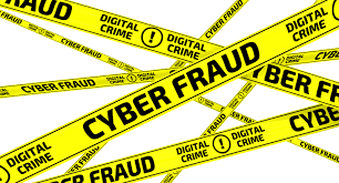|
The level of internet-related thievery has never been higher. This problem is like cancer and can strike anyone. Like car theft, the bad guys will strike those who are careless, gullible or just plain stupid. In other words, if you leave that MacBook Pro in visible sight on your front seat while shopping at the mall, you're tempting fate. The same can be said about cyber crime. If you leave your windows unlocked, don't be surprised if you have unexpected visitors. One of the biggest problems I run into is businesses that get hacked and want to know how it happened and how to avoid it. Don't think that your business is not big enough to be targeted. Most smaller businesses don't need to worry about being targeted ransomware but large businesses, and government public sector organizations need to be very vigilant.  The bad guys rely on their prey to be careless. That means don't write your passwords down and put them under a kleenex box, or in a book on your desk. Businesses also need to make sure that their employees never insert any kind of USB zip drive devices or visit the types of sites (porn and free stuff) that are notorious for malware and viruses. Permissions are the other big problem that most people overlook. Out of convenience, many folks grant site permissions as it's much quicker to gain access using your log-in credentials from another site (FaceBook, Google, Yahoo, etc). The problem is if you're compromised, it's not for just one site. For that reason, minimizing permissions and utilizing 2-stage authentication is the my wise advice. It goes without saying, but never click on links in e-mails unless you trust the sender and know it's really from them. Just because you recognize the name of the sender is not enough. The bad guys hope you don't know about being able to run your mouse over the name of the sender to see the actual e-mail address. That's because while the senders name is usually legit, their e-mail is always bogus. I was notified that there is currently a Netflix scam so bad, the police are warning the public. If you ever get a warning e-mail that your account has been compromised or suspended, do not click on any provided links. The same holds true for virus or malware warnings. If you ever get one, never click ok to "fix it". One of the only negatives to me moving from iOS to Google OS and my Samsung S8+ is I periodically get popups asking me to download cool applications for my S8+. Sometimes I will get a virus/malware warning telling me to click to fix. The first thing I do is close the browser. I then re-open it and clear the cache. Problem solved! There are all kinds of scams but the most common ones are the ones that are easiest to avoid. Over 40% of small businesses will be impacted by cyber crime.
0 Comments
Leave a Reply. |
Archives
March 2021
CategoriesAuthorJoel Saltzman has over twenty years of wireless industry experience. He is currently CEO and Chief Wireless Analyst for Dr Wireless. |



 RSS Feed
RSS Feed
